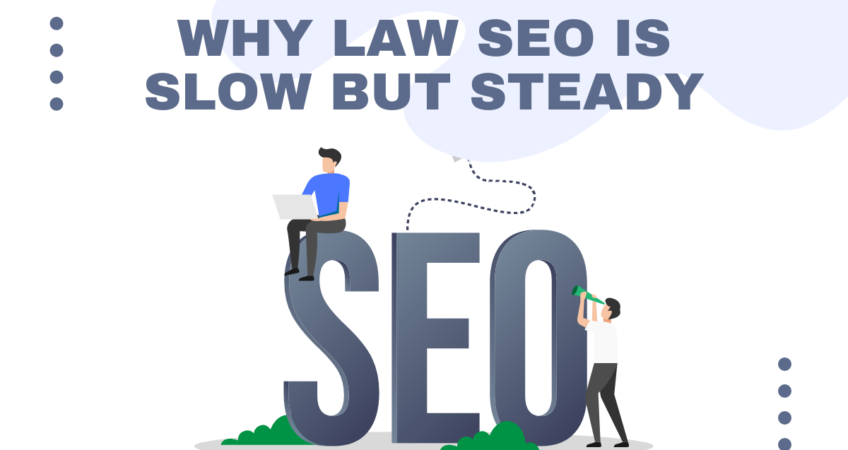
Why Law SEO is Slow But Steady
In digital marketing, law search engine optimization (SEO) has become an indispensable tool for businesses, including law firms, aiming to enhance their online visibility. However, the landscape of legal SEO in Los Angeles often unfolds at a slower pace than other industries. Despite this seemingly tardy progress, law SEO remains profoundly influential. Let’s delve into why law SEO might take time to yield results but proves invaluable in the long run.
1. Complexity of Legal Keywords
Law-related searches often involve complex and specific terminology. Users seeking legal information are more likely to use precise, niche keywords. This specificity makes it challenging to rank quickly for specific terms. Law SEO requires a meticulous approach to keyword selection and optimization, and the competition for these keywords can be fierce.
2. Regulatory Constraints
The legal industry is subject to stringent regulations and ethical considerations. Law firms must be cautious in their digital marketing strategies to comply with these rules. This regulatory environment can slow the implementation of specific SEO tactics, as law firms must carefully navigate the ethical landscape while optimizing their online presence.
3. Longer Sales Cycle
Legal services are often not impulsive purchases; they involve careful consideration and a longer decision-making process. Prospective clients may conduct extensive research, read reviews, and compare multiple options before choosing a law firm. As a result, the conversion process in the legal industry is inherently more extended, leading to a slower manifestation of SEO results.
4. Trust-Building Takes Time
Establishing trust is a paramount factor in the legal profession. Potential clients are entrusting attorneys with sensitive and critical matters. Building this trust online through SEO efforts requires consistent and authentic communication. It takes time for a law firm’s website to be recognized as a reliable source of information, contributing to the perceived slowness of SEO results.
5. High Stakes, High-Quality Content
Legal content demands a high level of accuracy, authority, and expertise. Crafting compelling, high-quality content that resonates with users and search engines is meticulous. While producing and refining such content might take time, it ultimately positions the law firm as an authoritative source in its field.
6. Localized Focus
Many legal practices are inherently local, and law firms often target specific geographic areas. Local SEO, crucial for legal practices, can take time to gain traction. It involves optimizing for legal keywords and location-based terms, contributing to the gradual pace of results.
7. Algorithm Updates and Adaptation
Search engines frequently update algorithms to enhance user experience and weed out manipulative tactics. Law firms engaged in SEO must stay agile and adapt to these changes. While essential for long-term success, this adaptive process can contribute to the perceived slowness in achieving SEO goals.
Conclusion
In conclusion, while law SEO may exhibit a gradual pace in yielding results, its effectiveness in the legal industry is undeniable. The complexity of legal keywords, regulatory constraints, longer sales cycles, the importance of trust-building, the need for high-quality content, localized focus, and the necessity for adaptation to algorithmic changes all contribute to the unique dynamics of law SEO. Understanding and embracing these factors positions law firms to harness the full potential of SEO, reaping the benefits of enhanced online visibility and client engagement over time.

